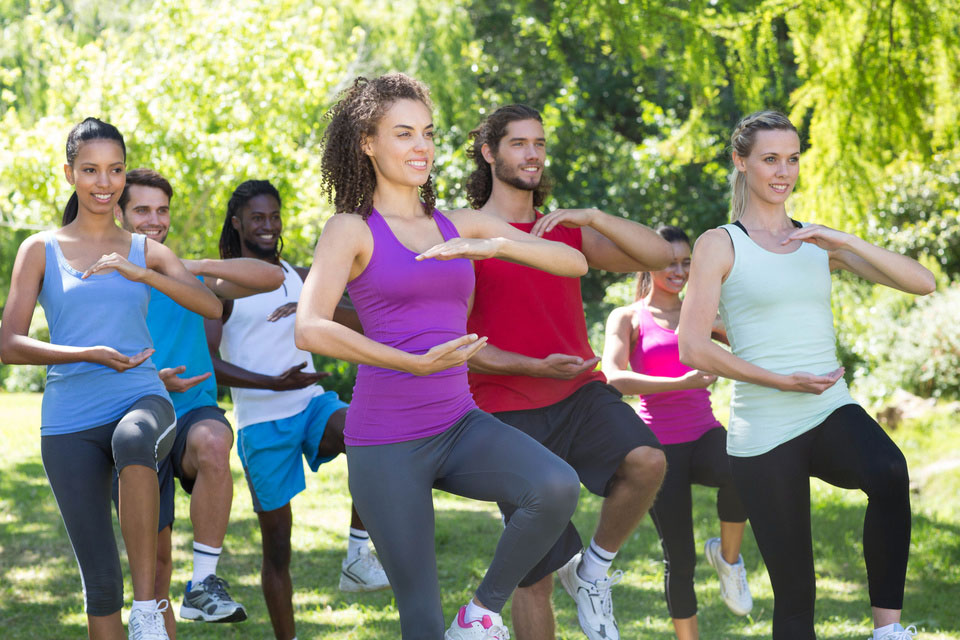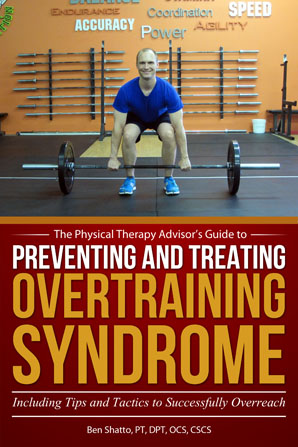Overtraining Syndrome (OTS) can affect any athlete in any sport or at any level from high level CrossFit athletes to high school cross country runners as well as professional athletes, weekend warriors, and weekend race enthusiasts. People of all ages are training harder and longer than ever before with wonderful results!
However, sometimes even the best of intentions can lead to not so desirable consequences. OTS usually starts with muscle soreness and a feeling of fatigue. Then it quickly progresses into a case of Overtraining Syndrome or injury. Overtraining can occur when the intensity and/or volume of exercise becomes too much for the body to properly recover from. For my tips and strategies to prevent OTS, please refer to How to Prevent Overtraining Syndrome (OTS).
Overtraining Syndrome will significantly impede your performance, and it frequently leads to a serious injury. In OTS, your body isn’t able to adequately handle or adapt to the high volume and intensity of exercise that you are performing. If you develop OTS, you will need to take specific steps to speed up your recovery in order to prevent injury and return to a normal training schedule.
Depending on the duration of symptoms and the severity of the case, OTS is a serious condition which can typically take from weeks to months to recover from. OTS not only affects the muscular system, but also the circulatory system, the nervous system, and the hormone regulation system. Use the following tips and strategies in your recovery.
How to Self-Treat Overtraining Syndrome (OTS):
Rest
One of the first and primary treatments for OTS is to rest. More rest is required the longer the overtraining has occurred. Therefore, early detection is critical. If the overtraining has only occurred for a short period of time (such as three to four weeks), a brief three to five days of rest may be sufficient while implementing the following treatment strategies. After the rest days, one must slowly taper back into training at a lower training volume until recovery is complete.

Cross train
Opt for an alternate form of exercise (like Tai Chi) to help prevent exercise withdrawal syndrome. However, don’t try to substitute more workouts in one sport in order to compensate for rest in another. This will only worsen the symptoms of OTS, which affects both the parasympathetic (PSN) and sympathetic nervous system (SNS).
Acupuncture
Incorporating acupuncture into your recovery process can be very beneficial. Acupuncture can help to address a multitude of conditions which affect the nervous, muscular, and hormonal systems. All three systems should be addressed during the recovery process. Along with many of my clients, I have experienced wonderful results with acupuncture. I highly recommend an acupuncturist who specializes in sports medicine and has experience treating athletes. During acupuncture sessions, you can take time to specifically work on intentional relaxation and meditation which has the added benefit of addressing the nervous and hormonal systems.
Seek help early
If you are experiencing chronic aches or pain or are struggling with an aspect of your training, seek help immediately. A healthy lifestyle is a lifelong pursuit. If you are injured or not enjoying an activity, you will not stay engaged or motivated in the long term. Seeking advice specifically from an experienced coach, physical therapist or physician can be beneficial.
Decrease the stimulants
It is important to take steps to help both the nervous and hormonal system re-regulate and rejuvenate. Often with OTS, the adrenals become overtaxed and the level of cortisol (a stress hormone) is too high. Intake of stimulants, such as caffeine, tends to worsen the condition. Caffeine can be found in many pre-work out supplements, running gels, soda, coffee, and tea as well as some over the counter (OTC) medications.
Eat healthy
A healthy diet is critical to avoid injury. Your body tissue needs nutrients to be able to perform at a high level. In many cases of OTS, I encourage that you consume a higher fat diet to help your body’s hormonal system re-regulate. Also, adequate protein intake is necessary to support muscle health and development.
Hydrate more frequently
The human body is primarily made of water, which is critical for all body functions. In the case of OTS, I highly encourage you to hydrate more frequently during recovery. Adequate water intake is critical to avoid dehydration which can negatively affect your training. Dehydrated tissues are prone to injury as they struggle to gain needed nutrients to heal and repair. Dehydrated tissues are less flexible and tend to accumulate waste products. Stay hydrated by drinking water.
Supplement
Appropriate supplementation can be a highly effective method to get back to training more quickly by insuring your body has the nutrients it needs to properly and quickly recover.
Overtraining syndrome can be dangerous and will severely limit your ability to train. It also significantly increases your risk of injury. A recovery protocol should include a multifaceted approach that incorporates strategies to positively affect the muscular, nervous, and hormonal systems.
Nothing can derail your best laid training plans and goals like an injury or suffering from OTS! If you develop OTS, you will need to take specific steps to speed up your recovery in order to prevent injury and return to a normal training schedule.

AVAILABLE NOW ON AMAZON!
In my book, Preventing and Treating Overtraining Syndrome, I show you how to recognize the risk factors and symptoms of OTS. You’ll learn how to utilize prevention strategies to help you develop a personal training strategy that will allow you to push past your limits and prior plateau points in order to reach a state of what is known as overreaching (your body’s ability to “supercompensate”). This will speed up your results, so that you can train harder and more effectively than ever before! In addition, learn how to use the foam roller (complete with photos and detailed exercise descriptions) as part of a health optimization program, recovery program, rest day or treatment modality.
Discover how you can continue to train hard and avoid the associated poor performance, illness, and injury that can result in lost training days and opportunity!
